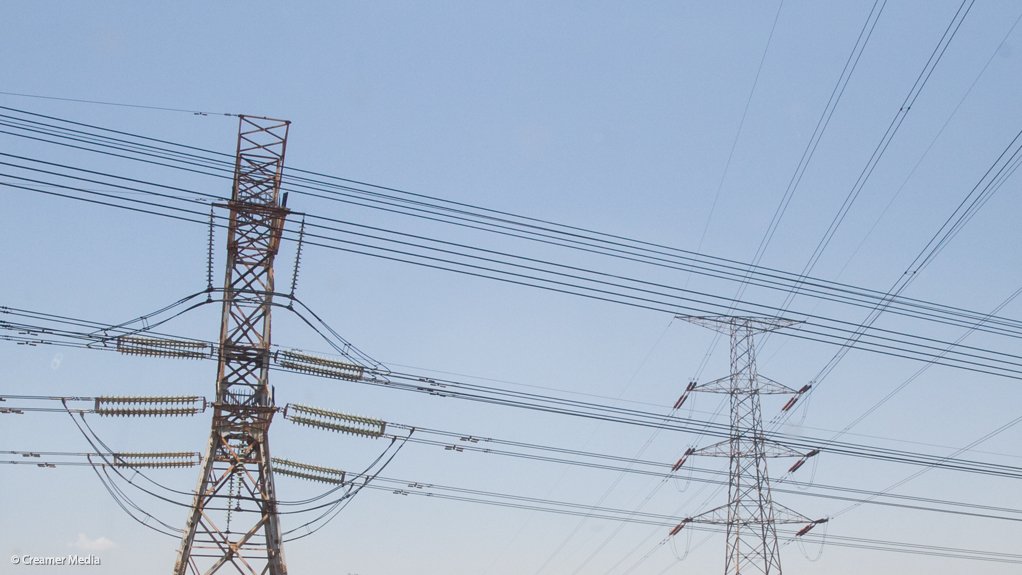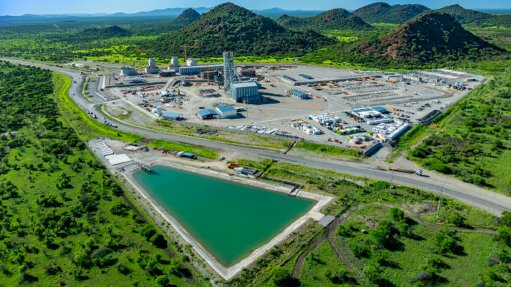Eskom says delaying update to tariff structure will entrench incorrect price signals
Eskom has appealed to the National Energy Regulator of South Africa (Nersa) not to again postpone the implementation of a new retail tariff plan (RTP), warning that any delay will further entrench prevailing incorrect price signals to consumers.
However, this appeal came amid warnings that the changes being proposed by Eskom could carry unintended consequences for municipal distributors and their customers, undermine nascent efforts to unlock new generation through wheeling, and penalise households and firms that have invested in rooftop solar systems.
In a presentation made during Nersa hearings into the RTP, Eskom’s Onicah Rantwane said the changes proposed sought to align the tariff structure with changes under way in the electricity sector, including increased self-generation and wheeling of energy, as well as ensure fair and equitable revenue recovery from all customers.
The tariff structure was last revised in 2012, despite previous applications by Eskom in 2020 and 2022 for an update of the RTP, including a separation of fixed network and capacity charges from variable energy charges.
“Currently, we have a situation where customers with self-generation and customers that are wheeling through the Eskom grid are receiving the grid backup without having to pay for the associated standby costs.
“Through this plan we are saying: ‘let’s start to introduce the price signal for standby costs’,” she explained, warning that there would be negative consequences for other customers, especially poor customers, should there be a delay in sending such a signal.
The adjustments, Rantwane insisted, were not intended to raise additional revenue but rather to reallocate the charges in a way that reflected the costs.
However, while the total tariff revenue would stay the same, Eskom acknowledged that certain categories of customers might pay more under the new structure.
The proposed Eskom RTP includes a number of far-reaching propositions, some of which are popular, such as a proposal to abandon the confusing inclining-block tariff. Others are more controversial, including the introduction of a fixed generation capacity charge and moves to remove a credit available for those wheeling electricity across the Eskom network.
The other major changes include updated time-of-use ratios and hours, a consolidation of municipal tariffs from ten to three, further unbundled residential tariffs, a removal of the credit for the affordability subsidy in wheeling and offset tariffs, and raising customer services charges at the point of delivery rather than by account.
Given the breadth and depth of the changes, various presenters at the hearings highlighted areas of risk and unintended consequences, including City Power’s Frank Hinda who warned that implementing the structural changes, as tariff increases for the coming three years were about to be determined, could increase price-path uncertainty.
Nersa is currently at the tail-end of adjudicating Eskom’s sixth multiyear price determination (MYPD6), where the utility has requested increases of 36.15%, 11.81% and 9.1% for the coming three years.
“While the RTP is not meant to result in tariff increases, the structural changes will result in increases for certain customer categories,” Hinda said, while calling for a delay in the implementation of any changes.
“The application should be referred back to Eskom for further consolidation for possible implementation during the second and third year of the MYPD6,” he argued.
Several other concerns were also raised, including one by the Sola Group, an independent power producer that is building new generation capacity on the back of power purchase agreements with corporates that have been facilitated by wheeling arrangements with Eskom.
Sola’s Jonathan Skeen warned that the proposed wheeling changes in the RTP could lead to an immediate erosion of economic benefits associated with large-scale solar PV deals by up to 40%, which would represent a “substantial market shock” and could erode investor confidence.
Ahead of the hearings, the Organisation Undoing Tax Abuse (Outa) said its submission to Nersa included various objections to the RTP, including mandatory time-of-use tariffs for households with solar, as well as what it describes as a shifting of the risks to customers with bigger fixed charges.
“We oppose any changes that place an unfair burden on consumers or discourage energy efficiency and small-scale embedded generation, like rooftop solar,” Outa stated.
Nersa’s Numfundo Maseti said that the next step would be for the Electricity Subcommittee to meet to deliberate on the recommendations it would make to the Energy Regulator, which would make the final decision.
No timeframe was provided, and it was unclear whether the decision would be made ahead of the MYPD6 announcement which is expected before the end of January.
Article Enquiry
Email Article
Save Article
Feedback
To advertise email advertising@creamermedia.co.za or click here
Press Office
Announcements
What's On
Subscribe to improve your user experience...
Option 1 (equivalent of R125 a month):
Receive a weekly copy of Creamer Media's Engineering News & Mining Weekly magazine
(print copy for those in South Africa and e-magazine for those outside of South Africa)
Receive daily email newsletters
Access to full search results
Access archive of magazine back copies
Access to Projects in Progress
Access to ONE Research Report of your choice in PDF format
Option 2 (equivalent of R375 a month):
All benefits from Option 1
PLUS
Access to Creamer Media's Research Channel Africa for ALL Research Reports, in PDF format, on various industrial and mining sectors
including Electricity; Water; Energy Transition; Hydrogen; Roads, Rail and Ports; Coal; Gold; Platinum; Battery Metals; etc.
Already a subscriber?
Forgotten your password?
Receive weekly copy of Creamer Media's Engineering News & Mining Weekly magazine (print copy for those in South Africa and e-magazine for those outside of South Africa)
➕
Recieve daily email newsletters
➕
Access to full search results
➕
Access archive of magazine back copies
➕
Access to Projects in Progress
➕
Access to ONE Research Report of your choice in PDF format
RESEARCH CHANNEL AFRICA
R4500 (equivalent of R375 a month)
SUBSCRIBEAll benefits from Option 1
➕
Access to Creamer Media's Research Channel Africa for ALL Research Reports on various industrial and mining sectors, in PDF format, including on:
Electricity
➕
Water
➕
Energy Transition
➕
Hydrogen
➕
Roads, Rail and Ports
➕
Coal
➕
Gold
➕
Platinum
➕
Battery Metals
➕
etc.
Receive all benefits from Option 1 or Option 2 delivered to numerous people at your company
➕
Multiple User names and Passwords for simultaneous log-ins
➕
Intranet integration access to all in your organisation




















